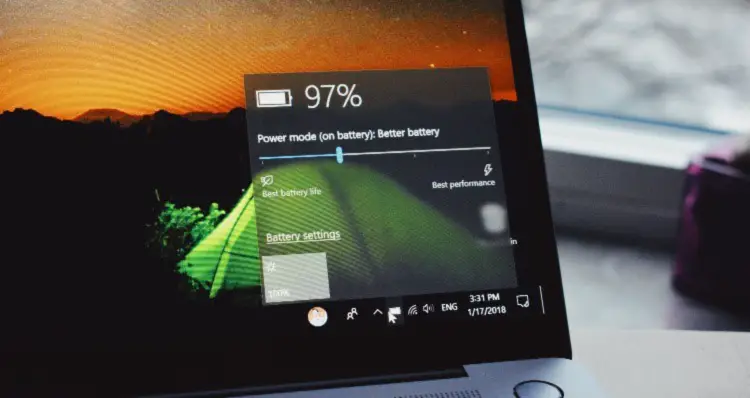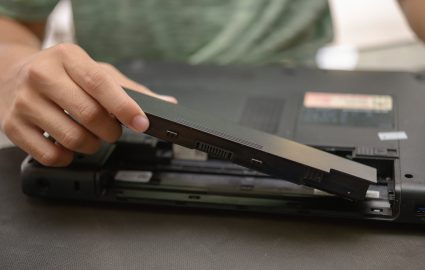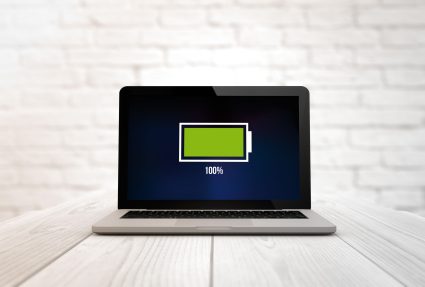
When it comes to buying a laptop, battery life is one of the most important considerations. After all, no one wants to be caught in a situation where their laptop runs out of power before they can finish their work or save their documents. Therefore, it’s essential to understand what battery life is, why it’s important, and what factors affect battery life when choosing a laptop.
Content of the page
What is Battery Life?
Battery life is the amount of time a laptop can run on a single charge of its battery. It is typically measured in hours and is determined by the type of battery, its capacity, and the amount of power being used. Battery life can vary significantly depending on how the laptop is being used, as different activities require different amounts of power.
Check out how much a battery last on a Dell Laptop and on a HP Laptop.
Why is Battery Life Important?

Battery life is important because it determines how long you can use your laptop without needing to recharge it. If you need your laptop to last for long periods of time without access to a power outlet, then battery life will be a major factor in your decision. Additionally, battery life can affect the laptop’s portability, as a laptop with a long battery life will be able to be used for longer periods of time away from a power source.
Factors Affecting Battery Life
Battery life is affected by several factors, including the type of battery, its capacity, and the amount of power being used. The type of battery can have a significant impact on battery life, as different types of batteries have different capacities and discharge rates. The capacity of the battery determines how much power it can store, while the discharge rate determines how quickly the battery drains. Additionally, the amount of power being used can affect battery life, as more power-intensive activities such as gaming or streaming videos require more power and will drain the battery more quickly.
In addition, the laptop’s operating system, hardware, and settings can also have an impact on battery life. For example, some operating systems are more power-efficient than others, while certain hardware configurations can be more power-hungry. Additionally, laptops with higher-resolution displays or faster processors tend to use more power and may have shorter battery life. Finally, adjusting the laptop’s settings, such as turning off Bluetooth or Wi-Fi when not in use, can help to conserve battery life.
Battery Life Expectations
When buying a laptop, battery life is an important factor to consider. After all, the battery is the only source of power when you’re away from a wall outlet. Knowing how long the battery will last can help you decide which laptop is best for your needs.
When it comes to battery life, there is no one-size-fits-all answer. Different laptops have different battery capacities and different power consumption rates. But, in general, you can expect anywhere from 2-8 hours of battery life.
| Activity | Estimated Battery Life |
|---|---|
| Web Browsing | 8-10 hours |
| Video Streaming | 5-7 hours |
| Playing Games | 3-5 hours |
| Editing Documents | 9-11 hours |
| Video Editing | 1-3 hours |
Typical Battery Life for Different Laptops

The type of laptop you buy will have a big impact on battery life. Entry-level laptops often have basic hardware and relatively low power consumption, so they tend to have the longest battery life. Mid-range laptops usually offer a balance between performance and battery life, while high-end laptops tend to have the shortest battery life due to their more powerful hardware.
Entry-level Laptops
Entry-level laptops typically have basic hardware and low power consumption, so they tend to have the longest battery life. You can expect anywhere from 6-8 hours of battery life from an entry-level laptop.
Mid-range Laptops
Mid-range laptops usually offer a balance between performance and battery life. You can expect anywhere from 4-6 hours of battery life from a mid-range laptop.
High-end Laptops
High-end laptops usually have powerful hardware, so they tend to have the shortest battery life. You can expect anywhere from 2-4 hours of battery life from a high-end laptop.
How to Maximize Battery Life
Although the type of laptop you buy will have a big impact on battery life, there are a few things you can do to maximize battery life.
Adjusting Power Settings
One of the easiest ways to maximize battery life is to adjust your laptop’s power settings. Many laptops have built-in power profiles that let you easily adjust the power settings. You can reduce the brightness of the display, disable unnecessary features, and adjust the power settings of different components.
Disabling Unnecessary Features
Another way to maximize battery life is to disable any unnecessary features. This includes disabling Wi-Fi and Bluetooth when not needed, as well as disabling any other unnecessary features.
Using Battery-Saving Apps
There are also a number of battery-saving apps available for laptops. These apps can help reduce power consumption by monitoring your laptop’s power usage and disabling any unnecessary features.
Upgrading Hardware
Finally, if you want to maximize battery life, you may want to consider upgrading your laptop’s hardware. Upgrading the RAM, hard drive, and other components can help reduce power consumption and increase battery life.
| Tip | Description |
|---|---|
| Lower screen brightness | Decrease screen brightness to conserve battery life |
| Close unused applications | Close applications that are not being used to save battery power |
| Disable Bluetooth and Wi-Fi | Turn off Bluetooth and Wi-Fi when not in use to save battery power |
| Use power-saving mode | Enable power-saving mode on your laptop to conserve battery life |
| Use headphones instead of speakers | Using headphones instead of speakers will conserve battery power |
| Reduce keyboard backlighting | Decrease keyboard backlighting to conserve battery life |
| Use a cooling pad | A cooling pad will keep your laptop cooler, which will save battery life |
| Disable non-essential features | Turn off non-essential features like camera or touchpad to conserve battery power |
| Use a dark desktop wallpaper | A dark desktop wallpaper will consume less power than a bright one |
| Keep your laptop clean and dust-free | A clean and dust-free laptop will work more efficiently, saving battery life |
Testing Battery Life

Testing a laptop’s battery life can be tricky, as the results can depend on a variety of factors. In order to get the most accurate results, it’s important to use a reliable benchmarking tool and measure the battery life under realistic usage conditions.
The most important aspect of testing battery life is to run the tests under realistic conditions. It’s no good to use a heavily-loaded benchmarking tool if the laptop won’t ever be used for gaming or other intensive tasks. Similarly, it’s not enough to just measure the battery life while the laptop is idle.
How Battery Life is Measured
When measuring battery life, it’s important to understand how the results are calculated. Battery life is typically measured in watt-hours (Wh). This is the amount of energy needed to power the laptop for one hour.
The best way to measure battery life is to run a benchmarking tool that simulates real-world usage. This will give the most accurate results, as it takes into account the power draw of the components, the ambient temperature, and the type of usage the laptop is expected to be subjected to.
Popular Benchmarking Tools
There are a few popular benchmarking tools that can be used to measure battery life. These include:
- PCMark 10 Battery Life Test: This test simulates typical laptop usage, including web browsing, video streaming, and gaming. It measures the laptop’s battery life over a two-hour period.
- 3DMark Time Spy Battery Test: This test simulates gaming performance and measures the battery life over a two-hour period.
- Real-world Usage Test: This test simulates real-world usage and measures the battery life over a two-hour period.
Conclusion
Summary
When testing the battery life of a laptop, it’s important to use a reliable benchmarking tool and measure the battery life under realistic usage conditions. Popular benchmarking tools include PCMark 10 Battery Life Test, 3DMark Time Spy Battery Test, and Real-world Usage Test.
Final Thoughts
Testing a laptop’s battery life can be tricky, as the results can depend on a variety of factors. It’s important to use a reliable benchmarking tool and measure the battery life under realistic usage conditions in order to get the most accurate results.
